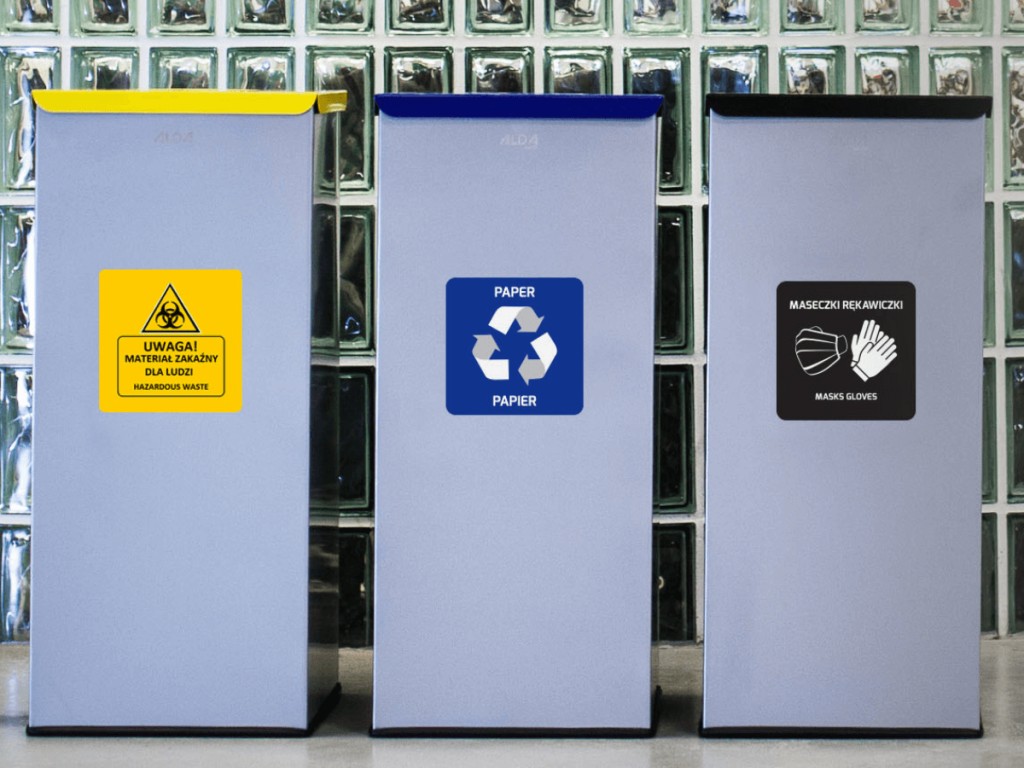How should difficult waste be segregated?

How should difficult waste be segregated?
The current global situation is encouraging more and more people to separate their rubbish and to raise awareness of environmental pollution. There is nothing strange about this, as a glance at the statistics shows that the amount of rubbish produced by our society is increasing dramatically every year. It is normal to want to take care of our planet, including by recycling, but it is worth doing so consciously, because with some waste, choosing the right container is not so obvious.
What is hard rubbish?
Difficult waste is all the waste whose recycling is questionable. It is therefore rubbish which we do not usually know how to assign to a particular container. Inappropriate waste handling can seriously harm our planet (soil, seas, oceans and forests are polluted) and in some cases even lead to legal consequences. There are many examples of difficult waste, including all types of oils and fats, broken electric appliances and used batteries (electro-waste), and various types of medicines that we can segregate into medical waste bins. Other types of waste which can only be disposed of at designated collection points include bulky waste and furniture.
How should difficult waste be prepared for disposal?
Before disposing of your bulky waste, it is important to find out how it should be dealt with first as some rules may not be obvious at first and, depending on the type of waste, may vary considerably. For example, any oils and fats should be put in a sealed container and then placed in a mixed waste bin or taken to a Household Waste Collector. Furniture and other bulky waste is collected from your household on the appointed dates (usually it is collected by the municipality but it may depend on your place of residence). All electro-waste such as batteries, LED bulbs or various damaged electric devices should be taken to the Collective Waste Collection Point, the same applies to household appliances and audio-visual equipment, however it is worth remembering that shops or transport companies often offer to collect old equipment when buying new, which is definitely a more convenient option. Medical products such as tablets and syrups are best disposed of at a pharmacy or municipal waste collection point.
What should we not do with difficult rubbish?
Although it may seem obvious to most, looking at the situations which occur in Poland, it is worth stressing that difficult rubbish should not be thrown into forests, rivers or lakes. Such behaviour is not only highly ecological, but also results in high fines and imprisonment. Nor should you burn such rubbish on your own. Nor should you put all your rubbish, without paying attention to where it should be placed, into mixed waste. Another common harmful practice is pouring oil down the toilet or sink, which causes grease to build up on the walls of the pipes and then clogs, as grease does not dissolve in water. We should also avoid disposing of terrariums and aquariums in the glass bins as the glass they are made from is not recyclable, instead our pets' former homes should go in the mixed waste containers.
Summary
Conscious separation of difficult rubbish, contrary to its name, does not have to be so difficult. All necessary information can be easily found on the Internet. It is therefore worth taking an interest in this subject, as it does not cost a lot of time and energy, and it will help protect the environment in which we live from pollution, as well as ourselves from legal consequences. All you have to do is think about which container your rubbish belongs in before you throw it away.
